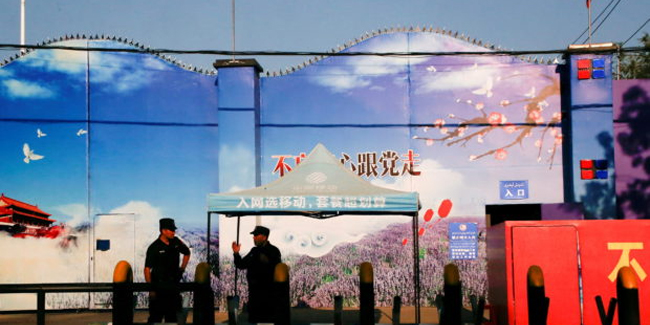The US was reportedly set to add more Chinese companies to its economic blacklist over Xinjiang.
US ECONOMIC BLACKLIST — The United States was reportedly set to add more Chinese companies to its economic blacklist over Xinjiang.

Inquirer reported that two sources told Reuters that the Biden administration was set to add more than 10 Chinese companies to its economic blacklist over alleged human rights abuses and high-tech surveillance in Xinjiang.
The United States Commerce Department action will follow its announcement last month adding five other Chinese companies and other Chinese entities to the blacklist over allegations of forced labor in the far western region of China.
Sources also told Reuters that the additions to Commerce Department’s Entity List were part of the Biden administration’s efforts to hold China accountable for human rights violations.
China dismissed accusations of forced labor and genocide in Xinjiang and said that its policies were necessary to stamp out separatists and religious extremists who plotted attacks and stirred up tension between mostly Muslim ethnic Uighurs and Han, the largest ethnic group in China.
As of this writing, the Chinese Embassy in Washington didn’t immediately respond to a request for comment.
READ ALSO: Biden Administration To Look At Adding “New Targeted Restrictions” On Tech Exports To China
One of the sources told Reuters that the Commerce Department planned to add 14 Chinese companies to the Entity List over reported abuses in Xinjiang. However, the identities of the Chinese companies being added to the Entity List weren’t immediately known.
Based on a report on Inquirer, the White House declined to comment, while the Commerce Department didn’t immediately respond to a request for comment.
The latest action showed United States President Joe Biden aimed to press China over what the administration said were worsening human rights abuses against the Uighur population in Xinjiang.
Generally, entity-listed Chinese companies were required to apply for licenses from the Commerce Department and faced tough scrutiny when they sought permission to receive items from US suppliers.
For more news and updates, you may feel free to visit this site more often. You may also visit Newspapers.ph via our official Facebook page and YouTube channel.
